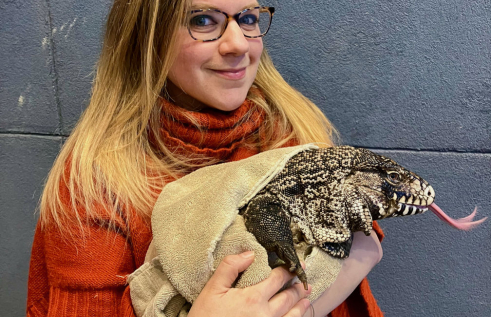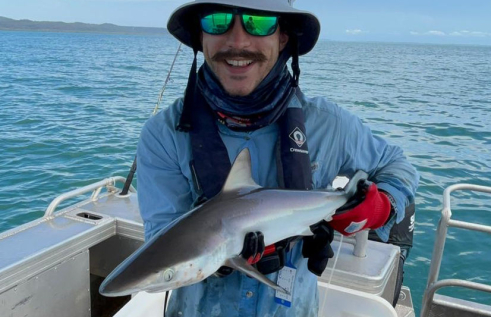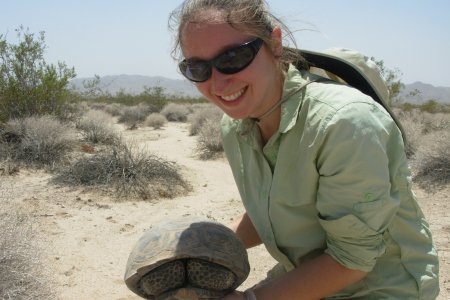Research Institute for the Environment and Livelihoods
Host–pathogen–microbiome interactions
| Presenter | Dr Chava Weitzman | |
|---|---|---|
| Date |
|
|
| Time |
to
|
|
| Contact person | E: RIEL.outreach@cdu.edu.au | |
| Location |
Savanna Room, Yellow 1.2.48 at CDU Casuarina Campus And online via Zoom (see below for Zoom link) All times are ACST |
|
| Open to | Public | |
Dr Chava Weitzman is a Postdoctoral Research Fellow with the Research Institute for the Environment and Livelihoods (RIEL) at Charles Darwin University.
In the seminar 'Host–pathogen–microbiome interactions: A look at tortoises and songbirds', Chava will focus on the relative ease and challenges of studying emerging diseases in two groups of hosts, tortoises and house finches, each impacted by a bacterial Mycoplasma pathogen.
Tortoises in North America are protected and sparse on the landscape. Just as tortoises are slow, so are their infections, with delayed impacts to individuals that make patterns difficult to study. In contrast, house finches are abundant, easy to keep in captivity, and are quickly impacted by mycoplasmal infection. The seminar will touch on what has been learned about the ecology of these diseases in light of differences in the two hosts.
Chava is studying skin microbiome communities of reptiles and amphibians with Prof. Keith Christian and Prof. Karen Gibb at RIEL. The work presented in this seminar summarises topics she addressed during her previous postdoctoral position at Virginia Tech and her PhD work at the University of Nevada, Reno, both in the USA.
Related Events

Ecosystem services and emerging market opportunities
Recently, governments and policymakers have become increasingly aware that economies are approximately 50% directly dependent on nature and that the decline in the health and functioning of natural systems threatens economic output
Read more about Ecosystem services and emerging market opportunities
After the volcano: building a field station in Montserrat, West Indies
Montserrat is a small British Overseas Territory in the Lesser Antilles with an active volcano which began erupting in 1995. For its size, Montserrat supports a wide range of habitats and many island endemics, making it an excellent location for ecological research
Read more about After the volcano: building a field station in Montserrat, West Indies
Shark and ray conservation in northern Australia and Asia
In this seminar we will hear from two emerging researchers from the Northern Shark and Ray Research Group at Charles Darwin University’s Research Institute for the Environment and Livelihoods (RIEL)
Read more about Shark and ray conservation in northern Australia and Asia
